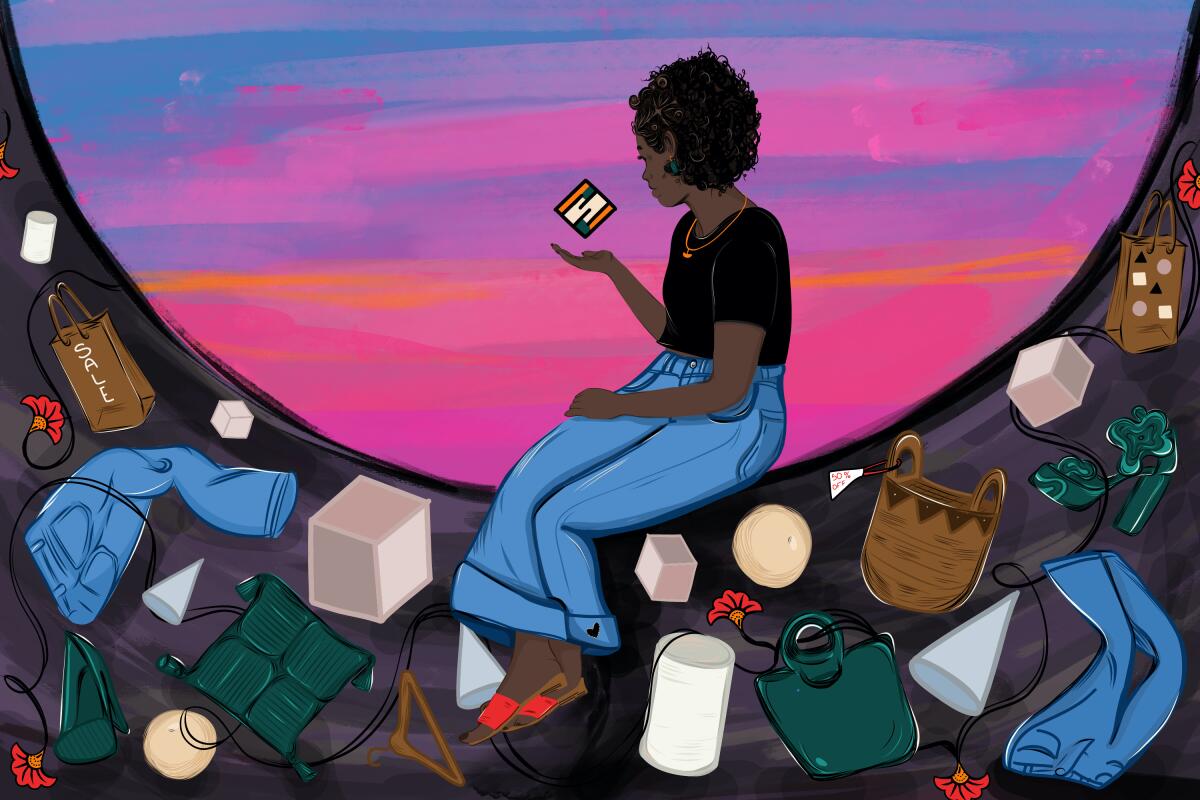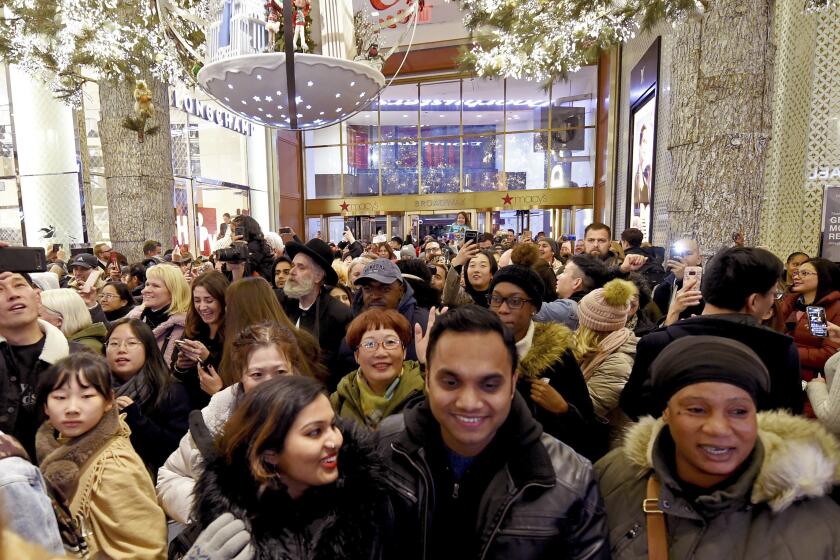Minimalism is about more than downsizing. It’s about living with intention

- Share via
Every so often, I smile as I reflect on the random Saturday morning when I found myself faced with a common clutter conundrum: Do I need more baskets and bins? I had to laugh as I asked myself: Are you really about to buy more stuff to hide all the stuff you don’t even use?
That was the day I first acknowledged that storing things, OK, hiding things, so they’d be out of sight and out of mind wasn’t a solution to my overconsumption. It was time for a change. It was time for me to change. Every online search that day centered on how to live with less stuff, and they all yielded the same results: become a minimalist.
If there were a contest for the woman least likely to succeed as a minimalist, I surely would have won. Much like my piles of clothing, home goods and knickknacks, the odds were stacked against me.
I’d spent much of my young adulthood and early career engaged in consumerism’s most popular sport: bargain shopping. And I wasn’t just any ol’ bargain shopper — I was really good at it. The years I’d spent running to the mall and circling sales racks resulted in a wardrobe overflowing with designer clothing and shoes that I rarely wore and smaller handbags nested inside of larger tote bags that I rarely used.
Second Opinion: There’s only one real solution for supply chain problems: Stop consuming so much
The pandemic helped expose the human and ecological toll of ever-cheaper goods. That awakening is the beginning of the end of careless consumerism.
The sales tags attached to many of these items were reminders that I was in love with the thrill of the hunt and not the things themselves. But the most damning evidence was my less than impressive bank account. A sobering reality that quickly shifted my perspective from becoming a minimalist by choice to minimalist by necessity.
Still, the question loomed: Could I really let go of my possessions and learn to live with less?
And given my affinity for bright colors, patterns and textures, could I embrace minimalism? Based on Pinterest and Instagram’s most-loved minimalist photos, my idea of the perfect decor was the antithesis of hygge. And being a Black woman? Let’s just say minimalism sure seemed white, literally and figuratively.
That same day, I decided to take inventory to see just how much stuff I owned. I counted 31 pairs of heels, even though I mostly wore flats. I had 53 pairs of jeans, even though I regularly wore the same 2-3 pairs. Workwear yielded 64 dresses yet I couldn’t remember the last time I’d worn any of them.
I was unprepared for the reality of my overconsumption and how I would feel once I confronted it. Not a single article or blog post prepared me for the emotions that would arise as part of the process. How come no one forewarned I’d feel guilty about how much money I’d wasted? I shed many tears before realizing that I had to forgive myself for my overshopping and overspending if I wanted to move forward. I’d never recoup what I’d spent. But I could change my habits.
Forgiving myself allowed me to approach decluttering more objectively. When considering whether to keep or donate an item, I asked myself: Do I need, use and love this? The item had to meet all three criteria or I’d let it go. I discovered that the same “need, use, love” philosophy I used for decluttering was also a useful framework for how to pay it forward with my donations. What person or organization would need, use and love the things that no longer served me? Soon, I had less stuff and more time and space for what mattered most.
Many people think minimalism is predominately white and only for the wealthy. But minimalism isn’t just about expensive furnishings and isn’t just a “white thing.” The homes of minimalists are as diverse as the individuals and families themselves. I call myself the “Afrominimalist” — a Black woman redefining and reimagining minimalism for herself — but there are many people in marginalized communities who are benefiting from being more conscious consumers. And these benefits go beyond having a tidy home.
Our lifestyle choices have the power to bring about individual and collective change to our mental health and well-being. To build generational wealth. And to make a difference in the world future generations will inherit. Living more consciously has allowed me to regain control of my finances as well as my sanity. I have also learned to live more sustainably, which benefits me and the environment.
Being less wasteful is a choice that has immediate and lasting impact. Another benefit of minimalism is learning to live with intention. The practice of being intentional about what you keep in your home teaches you to be intentional about every area of your life.
It’s been six years since that fateful Saturday when I decided to live with less, and I have no regrets. In addition to downsizing, I’ve learned to help others take control of their consumption. The goal isn’t just to become a minimalist; it’s to become a more conscious consumer. Living with less is an opportunity to discover value in who we are, not in what we have.
Christine Platt is an activist and author, most recently, of “The Afrominimalist’s Guide to Living With Less.” @afrominimalist
More to Read
A cure for the common opinion
Get thought-provoking perspectives with our weekly newsletter.
You may occasionally receive promotional content from the Los Angeles Times.










